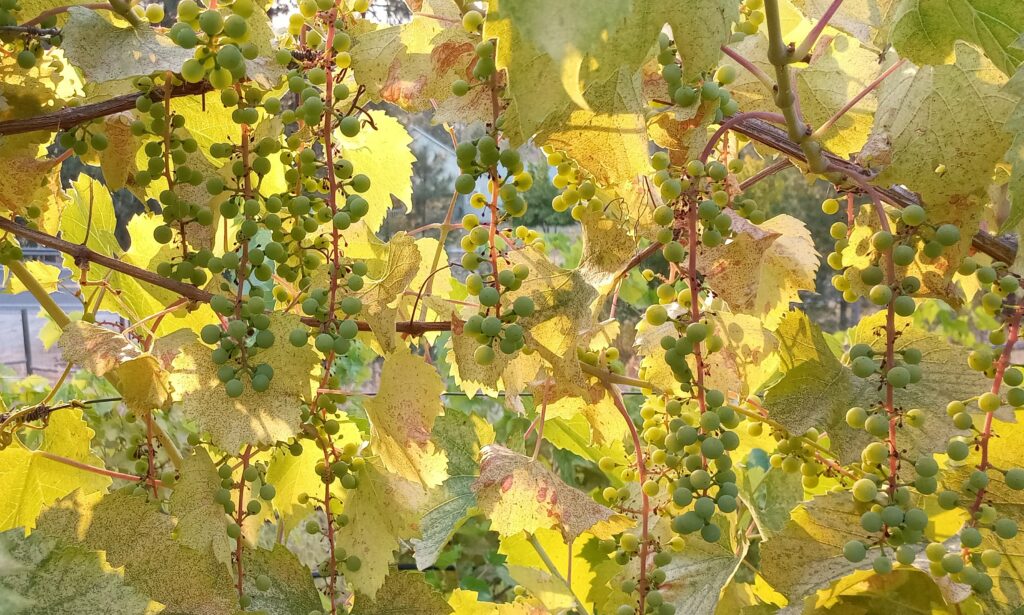My farm (and we could insert several other enterprises here) seems to run mostly in crisis-management
mode. The best laid plans (assuming that you have actual plans and not just good intentions) often go astray. The Spring is too wet. The Summer is too hot. The supply chain is slow and expensive… It’s not like you have control over all these events. The major impact is on time. When you think about it, time is all you have. Your time and attention are your life. So, saving time turns out to be a big deal. A good way to save time is to not do things that may or may not need to be done.
So how do you decide that? The most direct approach is to not do something that you would, should or could do and see what happens. We could call that lazy. But hey. Lighten up. Let’s call it an experiment and throw it into the realm of legitimate science.
Supposedly, science involves a hypothesis, a study, a control group, statistics, a critical deciding factor on whether the hypothesis was correct and of course, repeatability by someone else. Let’s get real. Who has time for that? We make decisions every day that have long term consequences. Often, we don’t know what all the factors are or will be. We could just roll the dice and accept the results. But if we make an effort to learn from the situation, that’s pretty close to science. The critical component is that you keep track of what you did – or didn’t do, and what happened. You don’t have to publish the results, but you could share them.
For example, in the July edition of the North Columbia Monthly, I questioned whether it made more sense to compost the abundant greenery that I was mowing between the rows of the vineyard, or to let it lay and act as mulch. Letting it lay was the lazy science approach. What I did compost was one action, what I did not compost was lazy. Let’s call it the “control group”. The clearer answers will come next spring. But I am leaning toward compost as better because dry mulch does not feed worms and just lying there it tangles up your feet. The critical component is the compost having a lot of worms or not.

Figure 1: Cane pruning spreads out the clusters
Another example is pruning the grape vines to leave only the longest canes (cane pruning) instead of pruning all the canes down to just a bud for the current year’s cane (spur pruning). Some of my vines really like to send out long canes. So, in several rows this year I let those long canes go whereas for most of the years of the vineyard I would have cut them back. In this situation, the variety of grape seems to be the best indicator of how to prune. But cane pruning is definitely looking good on several varieties.
More examples include thinning out all the small and lower canes to open up the center of the vine and cut down on the insects that like a dark cluttered habitat. I didn’t do that on several rows and the results were bad. Ignoring gopher mounds might seem lazy, but I check to see if the nearby vines are better or worse off before trapping. Actually, I am not finding big problems with that and like the idea of getting the soil turned over naturally. The mounds themselves are annoying, so I rake them flat.
Lazy or not, science itself can be annoying too. Standard practices based on “scientific” studies financed by big corporations at corporate-funded universities have got to be suspect. Recommendations based on field studies in some far-distant state with a different soil and climate, also have to be taken with a grain or two of salt. Often, when practices on a farm don’t seem to line up with industry standards, a look at how those standards evolved reveals a very specific situation, limited resources, unrecognized assumptions, and primitive techniques in the original study where the “standard” was established. What makes science work is that it continuously needs to be challenged.
I’m not saying that doubting all the standard advice will usually save you time. Most of what I have learned has been through making mistakes. That makes me more willing to make mistakes than most people, I guess. But if you look at it as science, lazy or not, it sounds a lot better.
